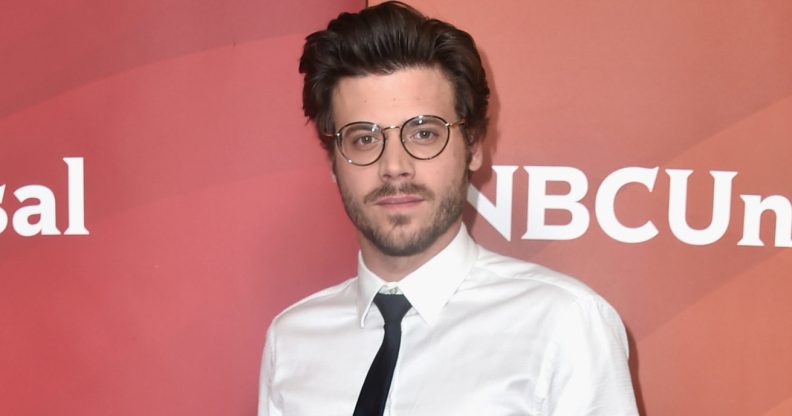Schitt’s Creek star François Arnaud just came out as bisexual with a powerful message about stigma, privilege and bi-erasure

François Arnaud. (Alberto E. Rodriguez/Getty Images)
François Arnaud came out as bisexual in a string of Instagram stories Sunday evening (20 September).
Arnaud, 35, described how chatting about his relationship history with some work pals prompted him to muse on the ways in bi-erasure is embedded even in the most nondescript moments of people’s lives.
The star, who made a memorable guest appearance in Schitt’s Creek as David’s ex, Sebastian, said he struggles as someone attracted to more than one gender to describe his relationships.
“I asked myself — for the ten-thousandth time — how to tell such a story without making it seem like that was the whole story of me,” he said.
“I’m sure many bisexual guys feel the same and end up doing as I did,” he wrote, “letting other people’s assumptions of straightness stand uncorrected.”
François Arnaud: ‘I’ve always considered myself bisexual.’
Arnaud outlined how many bi folk feel impeded by people’s assumptions on their sexuality, and may feel that can’t correct them because it’s “really f***ing scary to give up your privilege”.
“But here’s the thing. Silence has the perverse effect of perpetuating those stereotypes, making bi guys invisible, and leading people to doubt that we even exist,” the Canadian actor wrote.
“No wonder it’s still a chore to acknowledge bisexuality without getting into lengthy explanations.”
“So yes, labels are frustrating and words, imperfect. But I’ve always considered myself bisexual.
“Not confused or trying to look edgy. Not disloyal. Not ashamed. Not invisible.”
Happy “Francois Arnaud just came out as bisexual” Day, everybody! pic.twitter.com/C9bKOBRWbq
— Jason Adams (@JAMNPP) September 20, 2020
Bi-erasure remains a rampant reality both in and outside of the LGBT+ community, with researchers linking the experience of having people doubt that bisexuality exists to serious health risks.
Indeed, researchers warn, although all LGBT+ people suffer from “minority stress”, which contributes to poor health, bisexual people experience unique stresses because of biphobia and bi-erasure.
Bisexual people are victims of negative stereotypes, for example, that bisexuality is a “phase”, and can feel “invisible” because their orientation is often assumed based on the relationship they are currently in. This can lead to inadequate healthcare.

